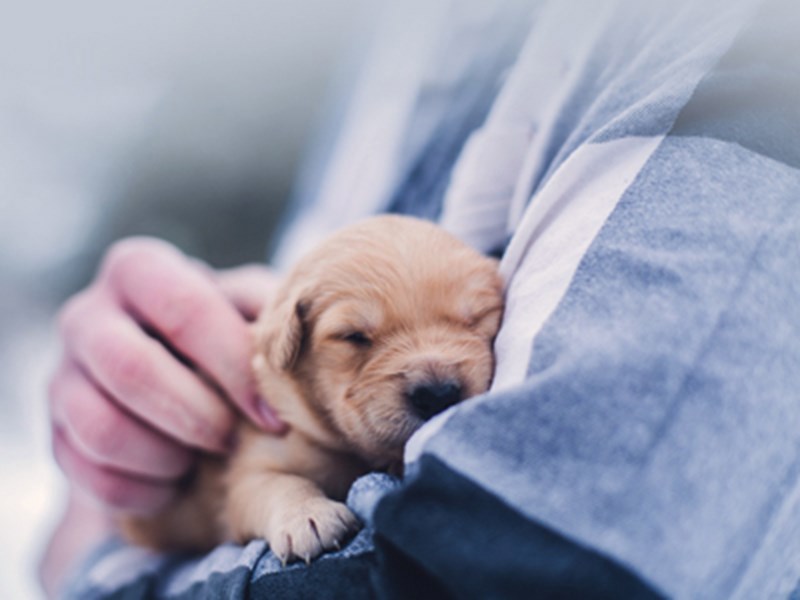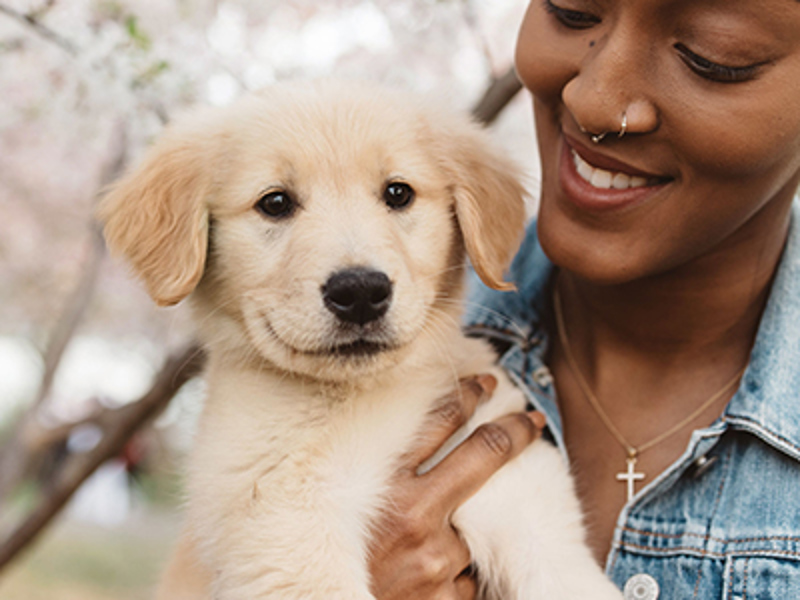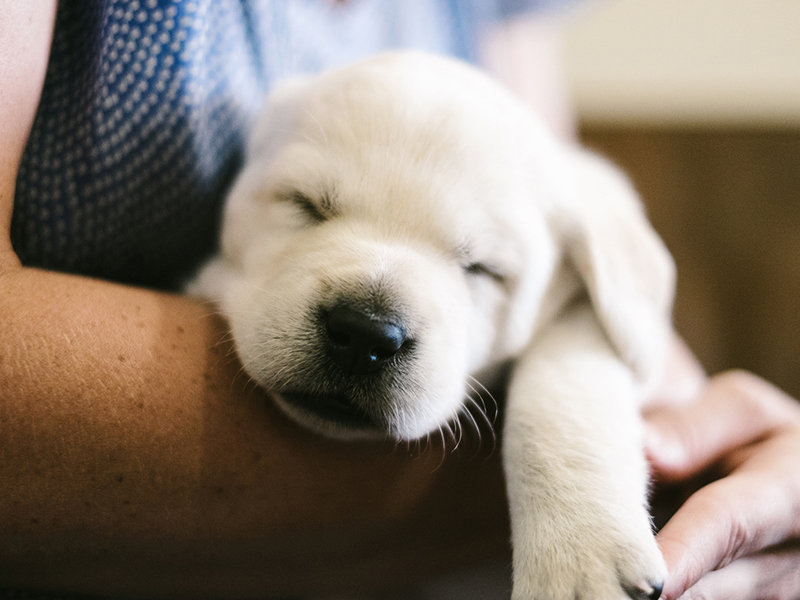
Dogue de Bordeaux
Breed characteristics
- Size
- Large
- Exercise
- Up to 1 hour per day
- Size of home
- Large house
- Grooming
- Once a week
- Coat length
- Short
- Sheds
- Yes
- Lifespan
- Over 10 years
- Vulnerable native breed
- No
- Town or country
- Country
- Size of garden
- Large garden
About this breed
The Dogue de Bordeaux was once known as the French Mastiff and, as with many breeds, several theories exist on its origins and development. It is likely that the original dog of this type existed in France as far back as the 14th Century and was used as a guard dog in vineyards and farms. With its traditionally cropped ears the Dogue was an intimidating sight. However, the breed was also used as a hunting dog and as a haulage dog. Sadly, like many of the Molosser breeds, the Dogue de Bordeaux was used in the fighting pits, often against bull or bear. The breed suffered a setback in the French revolution in the 1780s when they were slaughtered alongside their aristocratic owners.
Documents exist which record the sale of English Bullmastiffs in the Bordeaux area in the late 19th century and it is likely that this blood played its part in the development of the breed. The first Breed Standard was written in 1910.
The first record of Dogue de Bordeaux in the UK can be seen in The Kennel Club Gazette in 1897 but they fell out of favour when ear cropping was banned and some of the dogs were exported and others died. The breed was not seen again in the UK until late in the 20th Century and sadly suffered from commercialisation, attracting many to the breed for its macho image and some of the stock was very poor and unsound. Today the breed has made headway with the dedication of serious breeders and was awarded championship status by The Kennel Club in 2016
Images for this breed
The Working breed group
Over the centuries these dogs were selectively bred to become guards and search and rescue dogs. Arguably, the working group consists of some of the most heroic canines in the world, aiding humans in many walks of life, including the Boxer, Great Dane and St. Bernard. This group consists of the real specialists in their field who excel in their line of work.
Colour Watch
Category 0: Breeds with no NBS colour registration options.
Read more about Colour Watch.
Breed Standard colours
Breed standard colour means that the colour is accepted within the breed standard and is a traditional and well-known colour in this breed.
Breed standard colours in this breed include:
- Fawn
- Isabella
- Mahogany
- Red
- Red & White
- Red With Black Mask
- Red With Brown Mask
- Tan
Other colour/s
'Other' means you consider your puppy to be a colour not currently known within the breed and one that does not appear on either the breed standard or non-breed standard list. In this instance you would be directed through our registrations process to contact a breed club and/or council to support you on identifying and correctly listing the new colour.
Non-breed-standard colours
Non-breed-standard colour means that the colour is not accepted within the breed standard and whilst some dogs within the breed may be this colour it is advised to only select a dog that fits within the breed standards for all points.
Colour is only one consideration when picking a breed or individual dog, health and temperament should always be a priority over colour.
Health
Whether you're considering buying a Dogue de Bordeaux puppy or breeding from your dog, it's important to understand the health issues that may affect the breed and how they can be managed or avoided.
Pre-breeding health screening
Good Practice schemes and tests
We strongly recommend that breeders, at a minimum, conduct these tests before breeding, as evidence indicates these conditions are a significant concern in the breed.
- Elbow testing (for elbow dysplasia) using the BVA/KC Elbow Dysplasia Scheme
- Eye testing using the BVA/KC/ISDS Eye Scheme
- Hip testing (for hip dysplasia) using the BVA/KC Hip Dysplasia Scheme
This breed can be affected by conformational concerns, more information can be found here
Find out about a particular dog's results
Please visit our Health Test Results Finder to discover the DNA or screening scheme test results for any dog on The Kennel Club's Breed or Activity Register.
You can also view the inbreeding coefficient calculation for a puppy's parents, or for a dog you're thinking of breeding from
DNA testing services
We don’t currently offer a breed-specific DNA testing package for this breed, but we have a wide selection of individual DNA tests available. To find out more and view our full selection, click here.
Breed health & conservation plan
The Breed Health and Conservation Plans
Our breed health and conservations plans (BHCPs) use evidence and data to help us understand the health issues found in each pedigree dog breed. These plans help breeders and owners identify health and welfare problems and use information, health tests and health schemes to avoid passing on those problems to future puppies. They also support and provide breeders with tools and specialist expertise to help manage genetic diversity, understand the impacts of close breeding, and find the best ways to preserve the population of their breed.
Working together for the breed
We’ve worked with breed clubs and breed representatives to gather all available evidence to help us determine the priority concerns for the breed and decide how we can work together to manage and reduce these problems.
The full evidence base is available at the discretion of the breed clubs, however if you would like to seek access to the full report, please contact our health team.
More about health
Have any questions about health in your breed?
If you have any concerns about a particular health condition in your breed then you may wish to speak to your vet or you could contact your breed health co-ordinator.
Breed health co-ordinators are individuals working on behalf of breed clubs and councils who are advocates for the health and welfare of their chosen breed. They acts as a spokesperson on matters of health and will collaborate with The Kennel Club on any health concerns the breed may have.
To contact your breed health co-ordinator please email
Kirsha Leonard
There are not currently any additional breed specific restrictions in place for this breed.
Breed watch
Category 3
Particular points of concern for individual breeds may include features not specifically highlighted in the breed standard including current issues. In some breeds, features may be listed which, if exaggerated, might potentially affect the breed in the future.
Breeding restrictions
There are a number of The Kennel Club's rules and regulations that may prevent a litter from being registered, find out about our general and breed specific breeding restrictions below.
More about breeding
There are not currently any additional breed specific restrictions in place for this breed.
Looking for a puppy?
Looking for a Dogue de Bordeaux? Explore our list of puppies and rescue dogs for sale near you.
More information

Need to find out more about a breed?
Use our Find a Club service where you can locate breed clubs that can offer support and advice.

Use our Find a Puppy service
The Kennel Club's Find a Puppy service provides contact details for breeders who have puppies available. Let's help you find your new best friend.

Get the best lifetime pet insurance
At Kennel Club Pet Insurance, we want you to focus on getting the best possible treatment for your dog without worrying about the cost.
